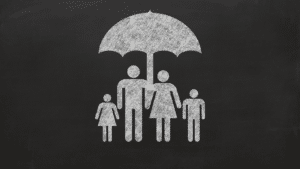
In today’s ever-changing financial landscape, determining how much savings you should have is not a one-size-fits-all answer. It’s both an art and a science, and is highly specific to your personal financial situation and influenced by various factors in your life, such as job security, interest rates, financial goals, economic conditions, and more. We want to discuss this question we get from tons of clients and prospects: How much cash should I have in my savings account? So, let’s take a look at some considerations to think about when answering this question and determining your savings strategy.
Personalized Approach:
Your financial goals, obligations, and risk tolerance all play a crucial role in determining the ideal amount to keep in savings your savings account. As mentioned above, the security of your job and consistency/variability of your income plays a large role in this answer. For example, if your income is variable and inconsistent, you might think about keeping more liquid cash on hand due to the variability of your payments. Additionally, if you have other financial goals you are working towards, you may or may not be allocating more funds to your savings account, and rather other places or goals. So, remember that your savings approach should be personalized and unique to your situation- do not look to others for their strategy, and rather work with a financial professional to help sift thru your personal situation and goals to establish your approach.
Consider & Maximize Interest Rates:
As we have been discussing for quite some time, interest rates on savings account have spiked over the last year or so, with high-yield savings accounts and certificates of deposits (CDs) now paying close to the 5% range or higher on cash. This higher interest rate environment is impacting the way consumers are thinking about cash within their overall investment portfolio. While keeping cash in a savings account or checking account, ensure that you’re maximizing the interest you earn. Shop around for the best interest rates and consider high-yield savings accounts or CDs that offer better returns on your money.
Take Your Budget Into Account:
As the consumer is continuing to adjust to this inflationary environment and a higher cost of living, many are tweaking their budgets. With student loan payments returning this month after a three year pause, you may be feeling a bit tighter on your monthly spending to accommodate this financial obligation. Revisit your budget frequently and ensure you are allocating some of your income to your cash savings so you aren’t sacrificing your savings goal.
Include Your Emergency Fund:
Among your cash savings should be your emergency fund, which serves as your cash reserve in the event of an emergency and is essential for unforeseen expenses or financial crises. A common rule of thumb is to have at least three to six months’ worth of living expenses in this fund. However, similarly to what we have described above, the exact amount should be tailored to your individual circumstances and comfort level. Your financial well-being is not just about numbers; it’s also about peace of mind. Consider what makes you feel comfortable. If you’re uneasy about having too much cash on hand, explore alternative options like investments or paying down debt to optimize your financial situation. Conversely, if you feel that you are too short on cash, consider hunkering down and building up your cash reserve.
So, in conclusion, there’s no one-size-fits-all answer to the question of how much savings you should have. Your personal financial situation, risk tolerance, and goals will guide your savings strategy. Work with a financial professional to determine the right balance of cash savings, investments, and debt management. Continue to keep up with economic conditions and interest rates to ensure that your money is working for you. Most importantly, find a strategy that provides you and your famliy financial security and peace of mind. If you are seeking help determining the right amount for your savings reserve, email info@shermanwealth.com or schedule a complimentary intro call here.



